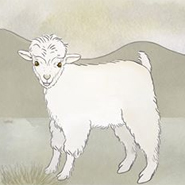- About
- Subscribe Now
- New York,
October 23, 2015

 Loro Piana baby cashmere drawing
Loro Piana baby cashmere drawing
Italian cashmere brand Loro Piana has devised a material sourcing method that ensures sustainable development without compromising its quality.
The LVMH-owned brand has been creating cashmere products since 1960 and has always placed an emphasis on quality over quantity. After five years of research surrounding cashmere production, Loro Piana’s technique has enabled breeders in China to combine higher quality wools with sustainable development for the Alashan region and its goats.
Shearing transparency
Loro Piana explains in a social media post that the method created has enhanced the fiber fineness while maintaining the quantity of the animal hair used its cashmeres. This has also resulted in its Chinese breeders needing to rear less goats, but keeping a high annual volume.
As a result, there has been an improvement in the standards of living and the natural balance between the animals and their habitat has been rekindled through a reduction of desertification in the area. To give consumers a visual, Loro Piana included a short clip of its Chinese goats and its shepherds.
In an article posted to LVMH’s news page, the method goes deeper into the technicalities of the “Loro Piana Method.” Here the consumer learns that during the research phase of the method’s development, started in 2009, Loro Piana worked with the Jilin Agricultural University, the Camerino University in Italy and the Italian National Agency for New Technologies, Energy and Sustainable Economic Development (ENEA).
LVMH image for the Loro Piana Method
For brands that source hides and wool from animals, it is increasingly important to maintain transparency with consumers, many of whom are concerned with the environment. When that trust is broken, it is vital that a brand reacts quickly and appropriately to ease consumers’ concerns.
Kering-owned British fashion label Stella McCartney, for example, was the most recent brand to come under fire for the unethical treatment of animals.
People for the Ethical Treatment of Animals (PETA) brought to the brand’s attention that one of its 26 sustainable wool producers from Ovis 21 in Patagonia, Argentina, was mistreating the sheep on its farm. Stella McCartney, the daughter of music icon Paul McCartney, has built her fashion brand through sustainability practices and without the use of any leather, fur or animal skins, causing this report to go against the label’s core DNA (see story).
Stella McCartney quickly issued a statement on its Facebook page, which also linked to a PETA-written article on the matter, to ensure its consumers that ties have been severed with the Ovis 21 source that was found to be mistreating its sheep (see story).
Share your thoughts. Click here